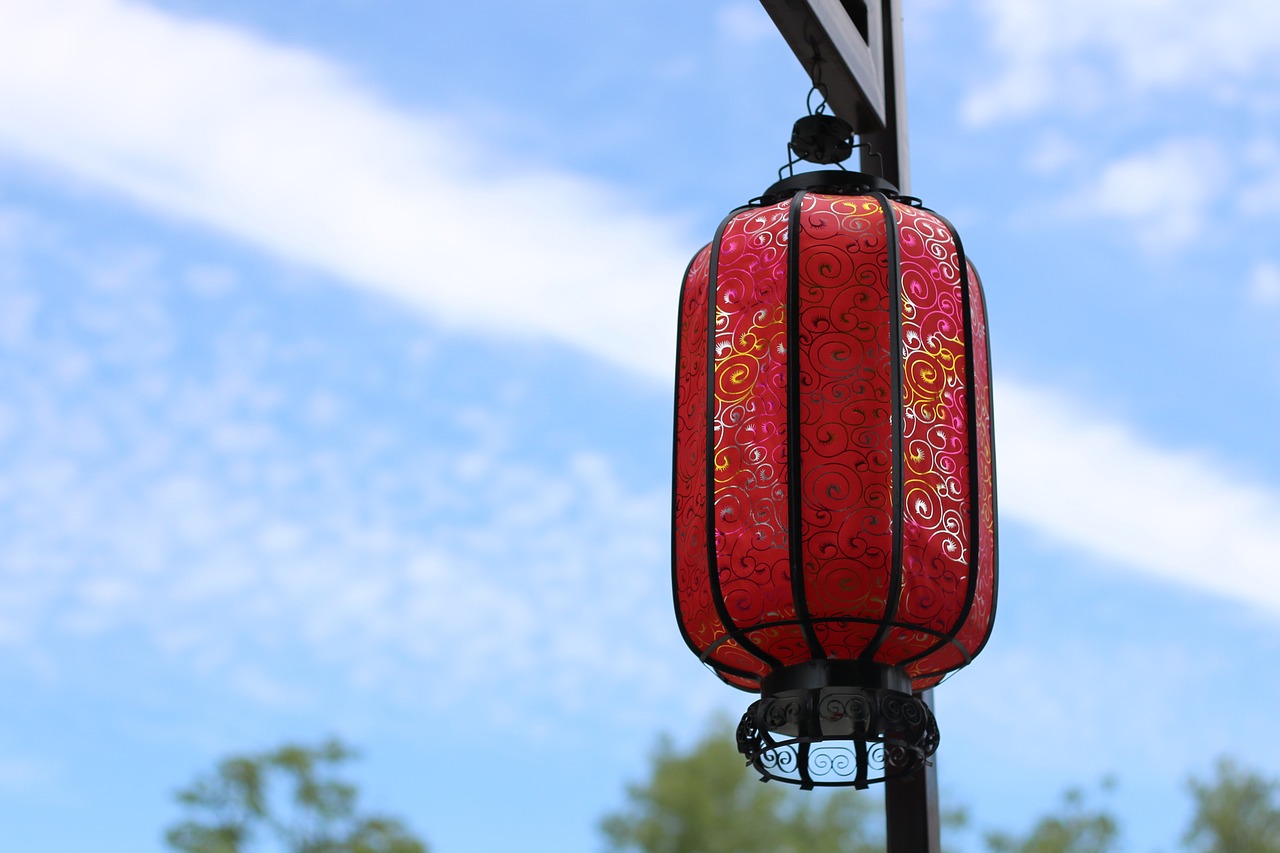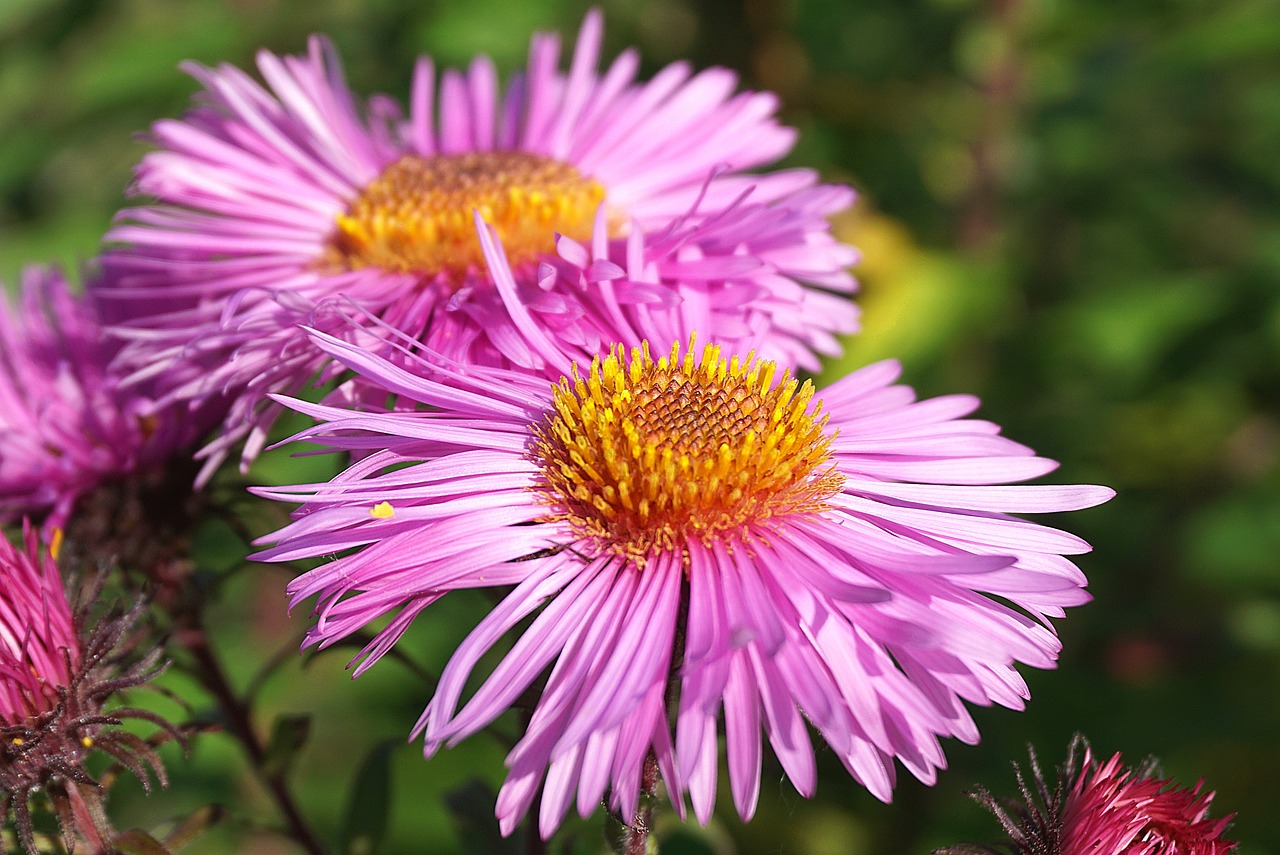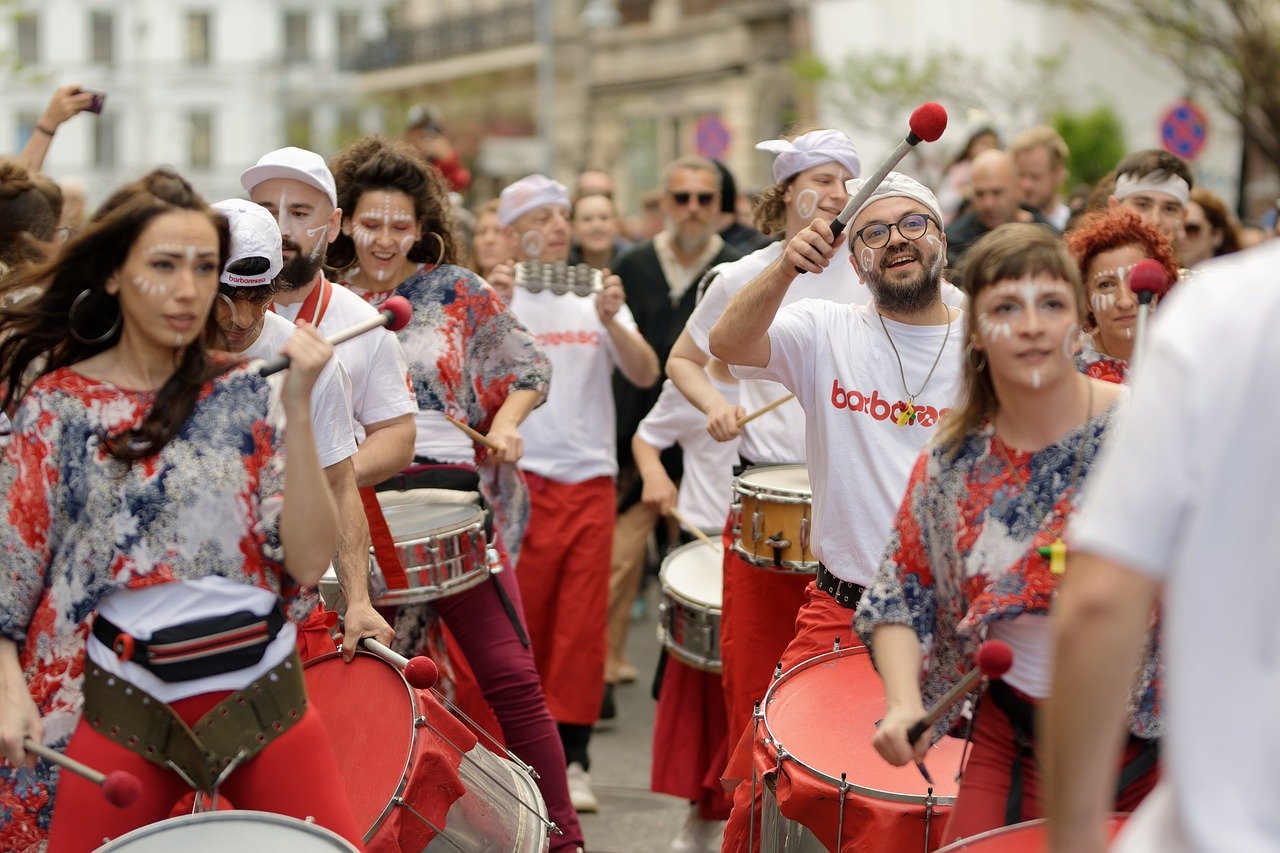The Joyous Celebrations of China's Double Ninth Festival
China's Double Ninth Festival, also known as Chongyang Festival, is a time of joyous celebrations and meaningful traditions deeply rooted in Chinese culture. This special day is dedicated to honoring the elderly, enjoying the beauty of nature, and embracing the symbolic significance of chrysanthemum flowers. It is a time when families come together, communities unite, and the spirit of festivity fills the air.

Origins and History
Exploring the traditions, history, and significance of the Double Ninth Festival in Chinese culture, a day filled with joyous celebrations, honoring the elderly, climbing mountains, and enjoying chrysanthemum flowers.
The Double Ninth Festival, also known as Chongyang Festival, has ancient origins dating back to the Warring States period (475–221 BC) in China. Initially observed as a day to ward off evil spirits and diseases, it later evolved to become a time to pay respects to ancestors and appreciate the beauty of nature. The number nine is considered auspicious in Chinese culture, symbolizing longevity and eternity. Over time, the festival transformed into a day of honoring the elderly and engaging in outdoor activities to celebrate life and good fortune.

Traditional Customs
Traditional Customs: The Double Ninth Festival, also known as Chongyang Festival, is steeped in traditional customs that have been passed down through generations in Chinese culture. One of the most prominent customs is the practice of climbing mountains, which symbolizes overcoming obstacles and reaching new heights in life. Families and friends gather to embark on mountain hikes, enjoying the crisp autumn air and breathtaking views as they ascend. This tradition not only promotes physical activity but also signifies the pursuit of progress and prosperity.
Another significant custom during the Double Ninth Festival is the wearing of cornel, a type of plant believed to have protective qualities. People adorn themselves with cornel branches or decorations to ward off evil spirits and bring good luck. This practice reflects the deep-rooted belief in warding off negativity and inviting positivity and blessings into one's life.
Furthermore, the consumption of chrysanthemum wine and cakes is a common ritual during the festival. Chrysanthemums are revered for their medicinal properties and are believed to promote longevity and vitality. Drinking chrysanthemum wine and indulging in chrysanthemum-flavored treats is a way to celebrate life and embrace the essence of rejuvenation and purity.
Additionally, families often come together to pay respects to their ancestors during the Double Ninth Festival. Offerings of food and incense are made at ancestral gravesites, honoring the past and expressing gratitude for the sacrifices of previous generations. This act of remembrance reinforces the importance of family ties and ancestral heritage in Chinese society.
Overall, the traditional customs observed during the Double Ninth Festival are rich in symbolism and meaning, emphasizing values of resilience, protection, longevity, and familial piety. These customs not only connect individuals to their cultural roots but also serve as reminders of the enduring traditions that shape Chinese identity.

Honoring the Elderly
During the Double Ninth Festival, one of the most cherished traditions is honoring the elderly, a practice deeply rooted in Chinese culture. This day serves as a reminder to express gratitude and respect towards the older generation, recognizing their wisdom, experience, and contributions to the family and society as a whole. It is a time for families to come together and show appreciation for the elders, often through special gatherings, gifts, and acts of kindness.
As part of honoring the elderly, families may visit the graves of their ancestors to pay their respects and offer prayers. This act symbolizes the importance of ancestry and the continuity of family lineage, highlighting the interconnectedness of generations past, present, and future. Additionally, it is common to present elderly family members with gifts, such as fruit, tea, or other tokens of appreciation, as a gesture of love and care.
Another significant aspect of honoring the elderly during the Double Ninth Festival is the emphasis on spending quality time together. Families often engage in activities that the elders enjoy, such as leisurely walks in nature, playing traditional games, or sharing stories and memories. This bonding time fosters strong family ties and creates lasting memories that strengthen the familial bond.
Furthermore, the act of honoring the elderly extends beyond familial relationships to encompass broader societal values. In Chinese culture, respecting the elderly is considered a moral duty and a reflection of filial piety, an important virtue that emphasizes the reverence and care for one's parents and ancestors. By honoring the elderly during the Double Ninth Festival, individuals reaffirm their commitment to upholding these values and preserving cultural traditions for future generations.

Outdoor Activities
During the Double Ninth Festival, engaging in outdoor activities holds a special significance in Chinese culture. One of the most popular traditions is climbing mountains, symbolizing overcoming challenges and striving for new heights. As families and friends embark on mountain excursions, the act of climbing is not just physical but also metaphorical, representing progress, achievement, and the pursuit of goals. The panoramic views from the mountaintops offer a moment of reflection and appreciation for nature's beauty, fostering a sense of tranquility and connection with the world.
Additionally, immersing oneself in the autumn scenery during the festival is a cherished practice. The vibrant colors of the changing leaves, the crispness of the air, and the gentle rustling of fallen leaves underfoot create a sensory experience that evokes feelings of nostalgia and renewal. Walking through wooded paths or along serene lakeshores allows participants to embrace the season's essence and find solace in the tranquility of nature.
Furthermore, partaking in outdoor picnics and gatherings is a common way to celebrate the Double Ninth Festival. Families and friends come together to enjoy festive meals amidst the natural surroundings, fostering a sense of unity and joy. Sharing food and laughter under the open sky reinforces bonds and creates lasting memories, highlighting the importance of togetherness and communal spirit during this auspicious occasion.

Chrysanthemum Symbolism
During the Double Ninth Festival, chrysanthemum flowers hold a special significance in Chinese culture, symbolizing various meanings deeply rooted in tradition and symbolism. The elegant chrysanthemum is revered for its representation of longevity, rejuvenation, and purity. In Chinese folklore, chrysanthemums are associated with the elixir of life, believed to have mystical properties that can ward off evil spirits and bring good fortune.
Furthermore, the chrysanthemum's ability to bloom in the late autumn when most flowers have withered is seen as a metaphor for resilience and endurance in the face of adversity. This resilience mirrors the spirit of the Chinese people, who find strength and beauty even in challenging times. The flower's vibrant colors and intricate petals also embody the idea of rebirth and renewal, reflecting the cyclical nature of life and the changing seasons.
Chrysanthemums are often used in various forms during the Double Ninth Festival, from adorning homes and altars to being brewed into fragrant wines and incorporated into traditional cakes. The flower's presence during the festival serves as a reminder of the interconnectedness of generations, as the elderly are honored and revered for their wisdom and experiences, much like the enduring chrysanthemum in full bloom.

Modern Celebrations
Modern Celebrations of the Double Ninth Festival have evolved to blend traditional customs with contemporary practices, creating a vibrant tapestry of festivities. Families across China come together on this special day to honor their elders, participate in cultural events, and enjoy the beauty of autumn.
One of the central aspects of modern celebrations is the emphasis on family gatherings. It is a time for relatives to reunite, share meals, and engage in activities that strengthen familial bonds. The Double Ninth Festival serves as a reminder of the importance of family unity and filial piety.
Cultural events play a significant role in marking the occasion, with communities organizing performances, exhibitions, and ceremonies to showcase Chinese heritage. These events not only entertain but also educate younger generations about the significance of the festival and its customs.
While traditional practices like climbing mountains and wearing cornel remain popular, new customs and activities have also been integrated into modern celebrations. From kite flying to themed parties, the Double Ninth Festival has embraced innovation while preserving its cultural essence.
Community involvement is key during the Double Ninth Festival, as neighborhoods come alive with shared rituals and feasts. People gather to enjoy traditional foods, watch dragon dances, and partake in various festivities that foster a sense of belonging and unity.
Overall, modern celebrations of the Double Ninth Festival serve as a bridge between the past and the present, honoring age-old traditions while adapting to contemporary lifestyles. It is a time to cherish heritage, strengthen social connections, and revel in the joy of coming together as a community.

Community Festivities
During the Double Ninth Festival, communities come alive with vibrant festivities that bring people together in joyous celebration. Traditional rituals and performances take center stage, creating a sense of unity and shared cultural heritage among participants. The streets are adorned with colorful decorations, and the air is filled with the sounds of music and laughter.
One of the key community activities during the festival is the gathering of families and friends for shared meals and feasts. Tables are laden with an array of delicious traditional dishes, symbolizing abundance and prosperity. It is a time for bonding and strengthening relationships, as people come together to enjoy the festive spirit.
Community elders play a significant role during the Double Ninth Festival, as their wisdom and experience are honored and revered. Special ceremonies and performances are held to pay tribute to the elderly members of the community, highlighting the importance of intergenerational connections and respect for the older generation.
Parades and processions are common features of community festivities during the Double Ninth Festival, with colorful floats and performances showcasing traditional art forms and cultural practices. These lively displays bring a sense of excitement and spectacle to the celebrations, captivating both locals and visitors alike.
Furthermore, community organizations often host cultural events and exhibitions during the festival, offering insights into China's rich history and heritage. From traditional crafts to folk music performances, these activities serve to educate and entertain attendees, fostering a deeper appreciation for the country's cultural traditions.

Significance in Contemporary Society
In contemporary Chinese society, the Double Ninth Festival holds a significant place as a time-honored tradition that reinforces the values of family, respect for elders, and cultural heritage. This festival serves as a poignant reminder of the importance of family bonds and filial piety, encouraging people to come together to celebrate and express gratitude towards their elderly relatives. It symbolizes a harmonious blend of ancient customs with modern sensibilities, highlighting the enduring relevance of traditional practices in today's fast-paced world.
Frequently Asked Questions
- What is the significance of the Double Ninth Festival in Chinese culture?
The Double Ninth Festival holds great cultural significance in China as a day to honor the elderly, enjoy outdoor activities, and appreciate the beauty of chrysanthemum flowers. It symbolizes respect for ancestors, family values, and the pursuit of health and longevity.
- Why is mountain climbing a traditional activity during the Double Ninth Festival?
Mountain climbing is a traditional activity during the Double Ninth Festival because it is believed to bring good fortune, ward off evil spirits, and promote longevity. It also represents overcoming challenges and reaching new heights in life.
- What is the significance of chrysanthemum flowers during the Double Ninth Festival?
Chrysanthemum flowers hold deep symbolism during the Double Ninth Festival, representing longevity, rejuvenation, and purity. They are also associated with honoring the elderly and paying tribute to the cycle of life and nature's beauty.
- How is the Double Ninth Festival celebrated in modern times?
In modern times, the Double Ninth Festival is celebrated with family gatherings, cultural events, and community festivities. It has evolved to include new customs and activities while still preserving the traditional values of respecting the elderly and embracing cultural heritage.



















